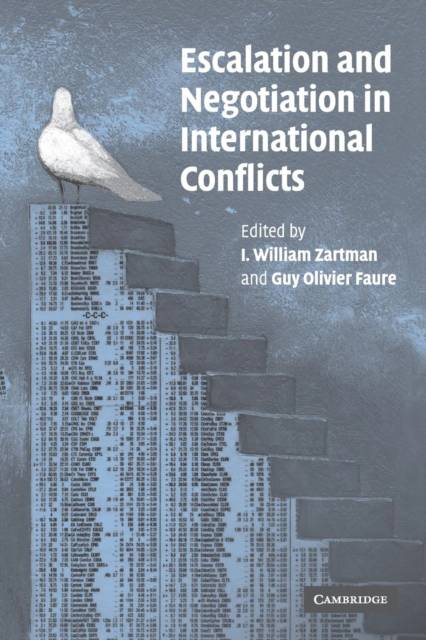
- Afhalen na 1 uur in een winkel met voorraad
- Gratis thuislevering in België vanaf € 30
- Ruim aanbod met 7 miljoen producten
- Afhalen na 1 uur in een winkel met voorraad
- Gratis thuislevering in België vanaf € 30
- Ruim aanbod met 7 miljoen producten
Zoeken
€ 41,95
+ 83 punten
Omschrijving
How can an escalation of conflict lead to negotiation? In this systematic study, Zartman and Faure bring together European and American scholars to examine this important topic and to define the point where the concepts and practices of escalation and negotiation meet. Political scientists, sociologists, social psychologists, and war-making and peace-making strategists, among others, examine the various forms escalation can take and relate them to conceptual advances in the analysis of negotiation. They argue that structures, crises, turning points, demands, readiness and ripeness can often define the conditions where the two concepts can meet and the authors take this opportunity to offer lessons for theory and practice. By relating negotiation to conflict escalation, two processes that have traditionally been studied separately, this book fills a significant gap in the existing knowledge and is directly relevant to the many ongoing conflicts and conflict patterns in the world today.
Specificaties
Betrokkenen
- Auteur(s):
- Uitgeverij:
Inhoud
- Aantal bladzijden:
- 350
- Taal:
- Engels
Eigenschappen
- Productcode (EAN):
- 9780521672610
- Verschijningsdatum:
- 16/01/2006
- Uitvoering:
- Paperback
- Formaat:
- Trade paperback (VS)
- Afmetingen:
- 154 mm x 228 mm
- Gewicht:
- 553 g

Alleen bij Standaard Boekhandel
+ 83 punten op je klantenkaart van Standaard Boekhandel
Beoordelingen
We publiceren alleen reviews die voldoen aan de voorwaarden voor reviews. Bekijk onze voorwaarden voor reviews.











